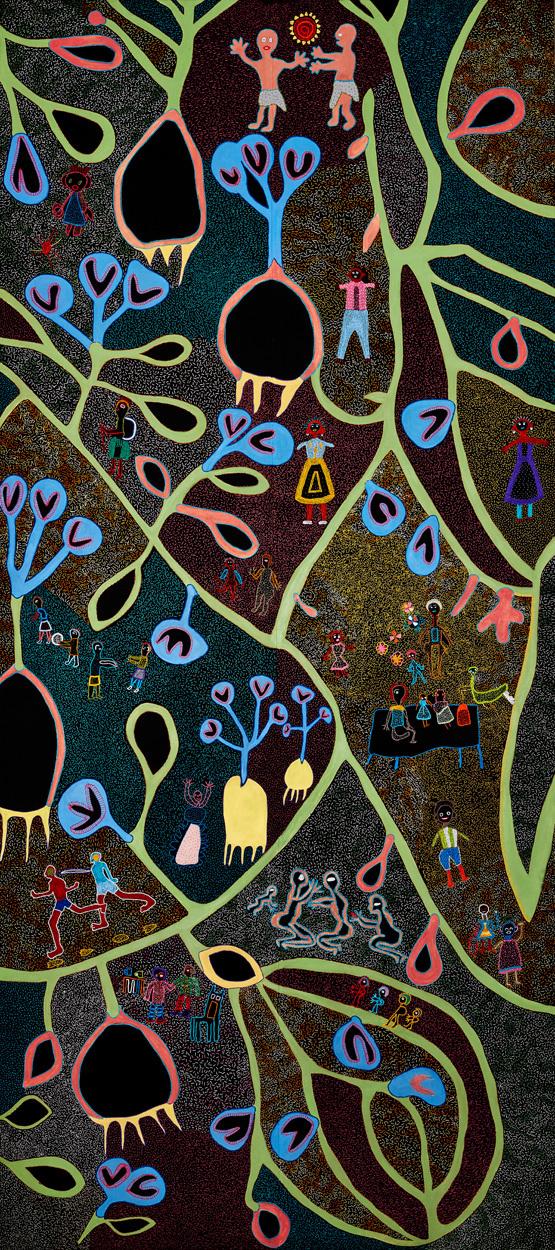
2 minute read
CSIR: WHERE INNOVATION MEETS EXCITEMENT


Advertisement
In June, the Council for Scientific and Industrial Research (CSIR) celebrated youth in STEM. Here, we spotlight four of the organisation's dynamic individuals who are using their skills to make a difference.
Meet CSIR Artificial Intelligence Engineer, Marshal Khosa
Marshal Khosa's first interaction with a Pentium III Mercer desktop, at the tender age of 13, planted the seeds that blossomed into a passion for engineering. Today, Khosa works as a senior artificial intelligence (AI) engineer at the CSIR.
"As an AI engineer, I wear many hats, such as that of a data scientist, machine learning engineer, software developer, technical project leader and mentor," he says. Part of his responsibilities includes researching new AI techniques and technologies and implementing them in real-world applications.
Practical tips for a successful career in AI engineering:
"To become a good AI engineer, one needs critical skills in algorithm design and mathematical modelling. You have to be curious, creative, open-minded and a critical thinker. If you are interested in this profession, you need to nourish and hone your own intellect before you will have the ability to engineer machines that develop intelligence artificially," says Khosa.
A
Meet CSIR’s lead in research in information and cybersecurity, Zubeida Dawood
With a job in the cybersecurity space, Dr Zubeida Dawood finds herself dealing with matters of national security. She often manages projects with sensitive information for clients and organisations, locally and internationally.
Dawood says that South Africa has been making efforts towards being more cyber-safe. While several laws have been put in place to support the government, officials and authorities have been unable to fully implement these laws due to lack of knowledge and experience in cybersecurity. Furthermore, there is a lack of cybersecurity professionals in the country.
Wise words:
Dawood believes that it is often believed that engineers and scientists have all the answers, but this isn't true. "On the contrary, we have many unanswered questions and are working towards solving them. As we solve and investigate, new discoveries are made," says Dawood.
"
Meet CSIR Industrial Engineer, Anieke Swanepoel


Anieke Swanepoel is the perfect example of how the CSIR grows researchers who have scarce skills through a development pipeline. Her industrial engineering studies were funded through the organisation’s bursary programme. She then joined the organisation as part of the Graduatein-Training Programme and today tutors and mentors young graduates who are part of the Youth Employment Services Programme.
Industrial engineers look at simplifying complex processes, systems or organisations by using data and mathematical calculations. Swanepoel is excited about the projects she is working on. One of them involves building a repository that will serve as a central database for all things transport and logistics for South Africa, while another centres on developing a mobile app that assists small-scale farmers with reaching more market opportunities through increased visibility.
Swanepoel on the future of industrial engineering:
"I’ve never encountered a problem or project that does not require the expertise of an industrial engineer. Our studies equip us with a multitude of skills, from technical to soft skills."
Meet CSIR Geoscientist, Zamaswazi Nkosi
In her job as geoscientist at the CSIR’s mining cluster, Nkosi focuses on rock engineering, geology and geophysics. She is passionate about using her abilities to resolve problems in the mining sector. She believes that geoscientists must be able to adapt to and adopt new technologies, methods, processes and discoveries.
Nkosi believes that analytical thinking is a key trait required when opting for a career in geosciences. "Geoscientists need to be able to analyse large amounts of data to understand geological patterns and predict mineral reserves; they must be able to think critically and logically," she says. She also believes that a geoscientist should have strong communication skills, perseverance, strong ethics, and be a team player.
Pro tip:
"Anyone interested in pursuing a career as a geoscientist in the mining industry should remain curious, adaptable and committed to ongoing learning and development, as the sector is constantly changing, and new technologies and methodologies are emerging all the time," says Nkosi.
Source: CSIR.co.za







